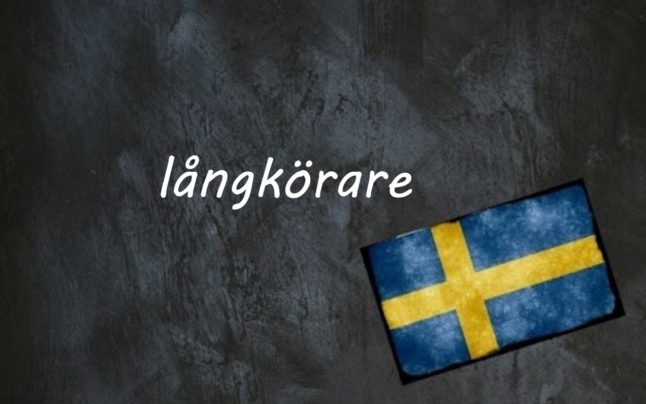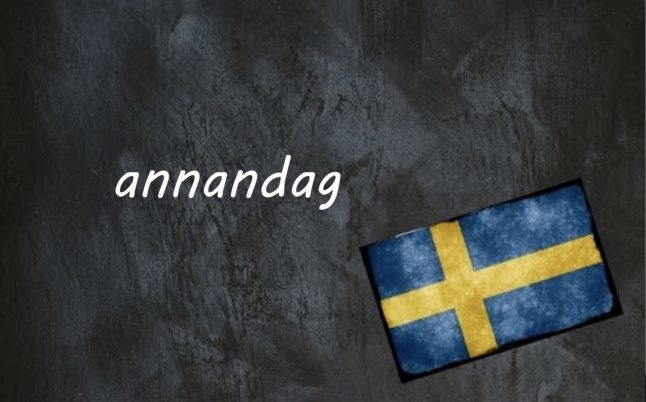Swedish is full of interesting compound words that describe a specific thing or concept, and en långkörare is one of them. It can be broken down into two components: lång (long) and körare, which means something like “driver” or “runner”, from the verb att köra.
- Don’t miss any of our Swedish words and expressions of the day by downloading The Local’s new app (available on Apple and Android) and then selecting the Swedish Word of the Day in your Notification options via the User button
Att köra is a very versatile verb. While it sometimes means “drive” in a literal sense (att köra en bil – to drive a car), its purpose is often simply to signify momentum. This is clear in expressions such as nu kör vi! (“off we go!”) and klara, färdiga, kör! (“ready, set, go!”), where köra implies action rather than being linked to a specific type of movement or direction.
The noun långkörare is commonly used to describe a TV programme that ran for several years with multiple seasons, or occasionally a long-running theatre production. In this context, it’s usually a positive thing since it shows the ongoing popularity of the show.
But långkörare has another meaning which makes it particularly appropriate this month. When you’re talking about business or political negotiations, the term refers to drawn-out dealings, or an issue that crops up time and time again. An English translation would be something like “a long-running issue” or “long-running saga”.
Exactly how long something has to take for it to be worthy of the term depends on the issue, but the key is that it lasts longer than is either necessary or desirable.
For example, Sweden is now expected to soon join Nato after Hungary ratified it on Monday. But that comes nearly two years after it handed in its application, with both Turkey and Hungary dragging their feet on ratification. You could say it has been a real långkörare.
Examples:
Förhoppningsvis blir det inte någon långkörare
Hopefully it won’t become a long-running saga
Den främsta långköraren i svensk TV är förmodligen Rederiet
The biggest long-running series in Swedish TV is probably Rederiet (a 318-series soap opera)
Villa, Volvo, Vovve: The Local’s Word Guide to Swedish Life, written by The Local’s journalists, is available to order. Head to lysforlag.com/vvv to read more about it. It is also possible to buy your copy from Amazon US, Amazon UK, Bokus or Adlibris.



 Please whitelist us to continue reading.
Please whitelist us to continue reading.
Member comments